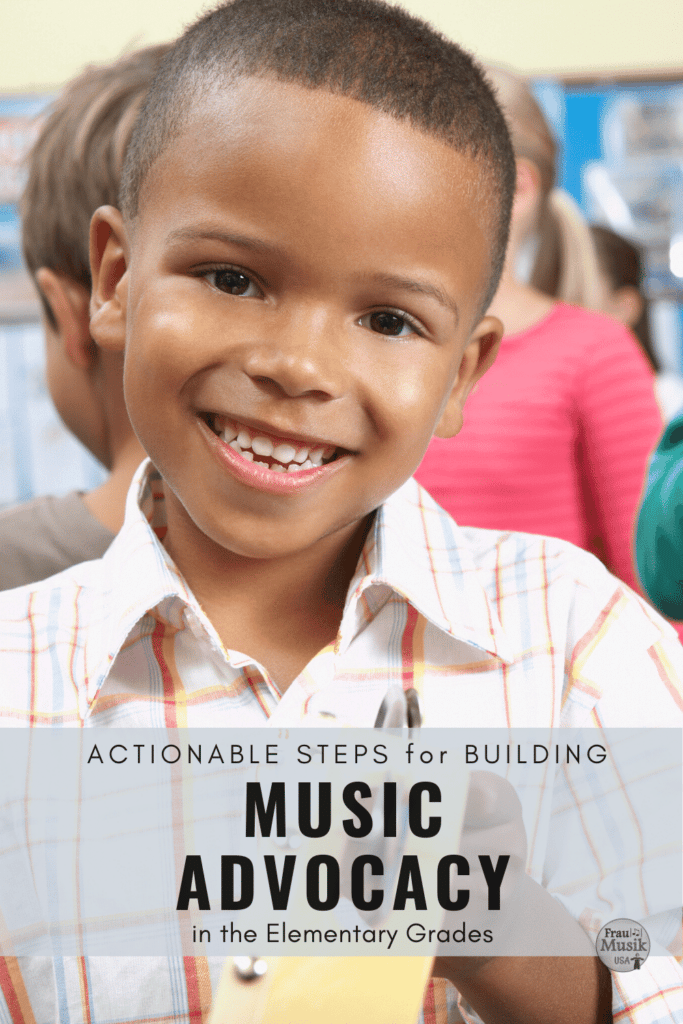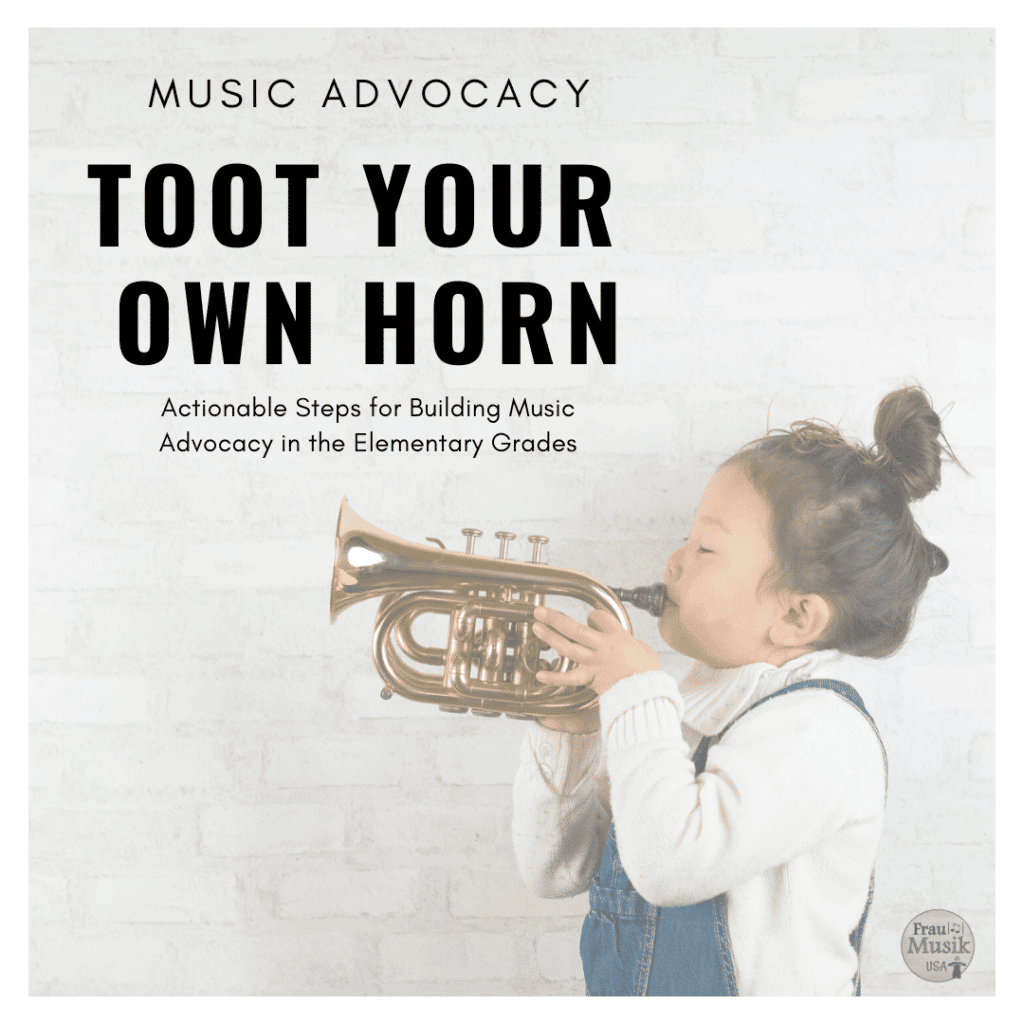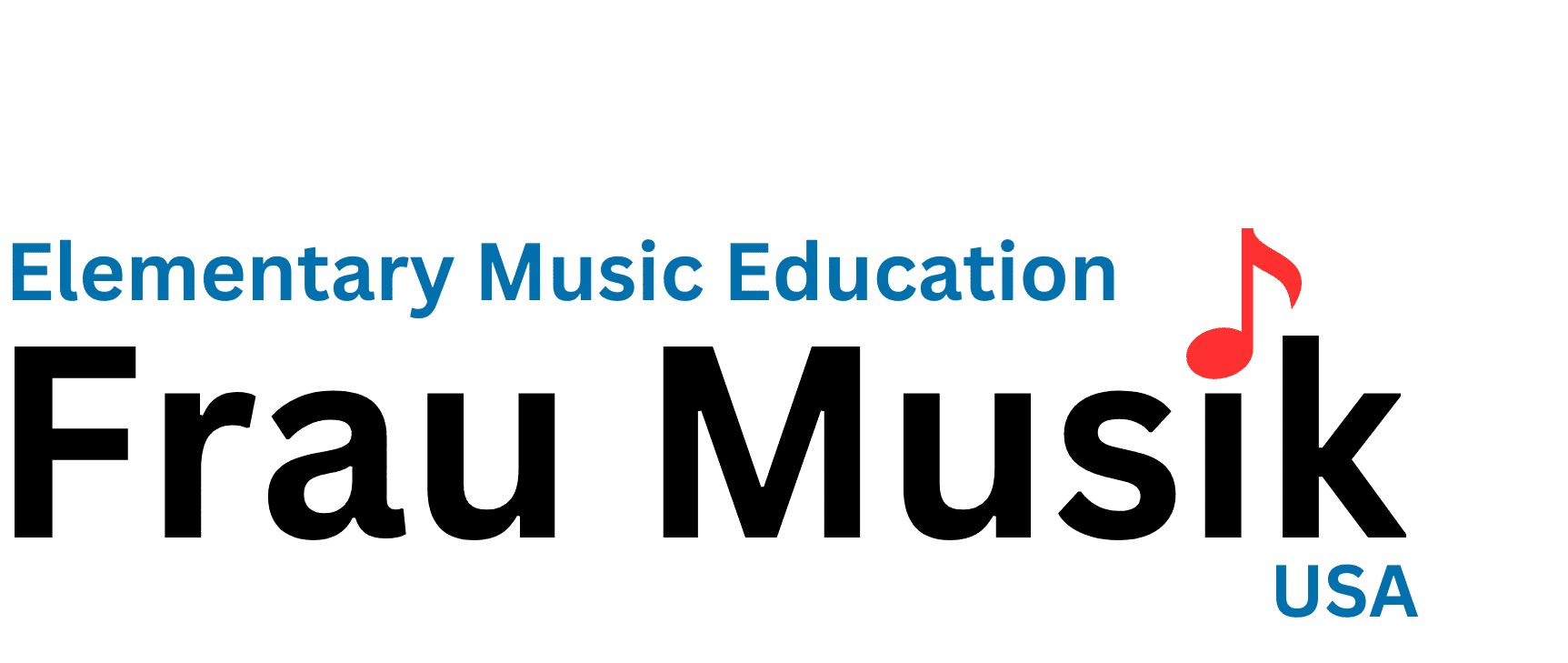8 Actionable Steps to Build Music Advocacy in the Elementary Grades
Do you need help building support for your music program? Don’t miss these actionable steps to build music advocacy in the elementary grades.
Some of the links on this site are affiliate links. If you click on a link and make a purchase, I may earn a small commission at no cost to you.
As a beginning teacher, I was isolated. I had moved to a new community and did not have a good support system yet. Online communities where I could search for advice or support did not yet exist.
Because I taught in a small school system, I was the only elementary music teacher in the district. But I had a wise unofficial mentor in our elementary P.E. teacher.
Sue would often share little tidbits of valuable advice. She had built her P.E. program from the ground up and everyone in the district, including the high school teachers and coaches, recognized the importance of physical education in the elementary grades. Several years before my arrival, Sue had convinced the district to schedule P.E. classes EVERY DAY for ALL elementary students. The school district was committed to the physical education program!

When I arrived, the elementary music program was floundering and there was little if any parental or community support for the program. With a meager two years of experience under my belt, I was in pretty deep.
You may have found yourself in a similar situation. Read on for actionable steps to build advocacy for your elementary music program. If you’re in the role of a mentoring teacher, please share this post with your mentee.
What’s in this post? Click to open the Table of Contents
The Classes You Teach ARE Important!
This is the most important thing Sue taught me. I began to understand what this meant for my music program. And, this phrase became an unofficial motto and a guiding force for my music program. It became the fundamental philosophy of everything I did.
“Treat your classes as important and others will come to see them as important too.”
Sue M.
Build Excellence to Build Music Advocacy
Building a culture of excellence doesn’t happen overnight. It takes years. But you can make strides toward excellence EVERY SINGLE DAY. Some students, parents, and administrators will jump on board right away, while others will act as stumbling blocks. Do NOT let the stumbling blocks trip you up.
You have a mission. Stay the course and keep working. Remember, your classes are important. Others will come to realize the importance of music if you continue to demonstrate the value of your discipline in a professional manner. The tips below provide a good start.
Be Efficient
Do not waste any time. Have everything ready to go and ensure every lesson is jam-packed with valuable, effective learning activities. Students should be productively engaged from the time they walk in the door until the time they leave. (This also helps to prevent discipline issues. If you do not keep students busy, they will find something else to do.)
Perform Quality Music
You cannot expect your students to perform well on a piece they don’t like. And if a piece is not one of your favorites, your students will see through the facade. Pick quality music that has stood the test of time or new music that brings excitement, joy, a positive message, or meaning to your classroom.
Toot Your Own Horn Quietly
Show, don’t tell, the value of music to parents, other teachers, administrators, and board members. You and your students can quietly “toot your own horns.”
Below are some ways you can demonstrate the value of music to your students, your school, and your community.

Maintain Your School Website
Your website is a valuable tool, both for teaching and for building music advocacy. Keep it updated with pictures, videos, and interactive music activities that draw students and parents to your site. Take every opportunity you can to “advertise” your website and your music program to your students, parents, and community.
Record and Post Classroom Performances
Your website is a great place to post videos of music class activities. After I would post a video, I would often immediately send the link to the classroom teacher. She would then distribute the link directly to parents via the Remind App. Often parents had watched and reshared the classroom performance before the kids had even gotten home!
This is a perfect way to let parents see what their child is learning in music class. Instrumental activities, Orff arrangements, songs with rhythm accompaniments, movement activities, scarf routines, classroom games, etc. all are ideal activities to video.
Creating videos of students’ classroom rehearsals and performances is also a great way to record and celebrate student success. Students LOVE to watch themselves. This is a perfect opportunity to teach self-evaluation and constructive criticism while acknowledging learning and looking for ways to improve.
Perform at School and Community Events
The possibilities are endless. Sing at festivals, nursing homes, PTO meetings, open a school board meeting, sing the national anthem at sporting events, etc. Get out there! Take every opportunity that comes your way.
Ask about performing at other community events.
Communicate
Communicate in a positive manner with students, parents, other teachers, secretaries, administrators, custodians, coworkers, aides, cooks, and all other school personnel. Keep them in the loop. They need to be “in the know” about what’s happening in your music program.
Coordinate with Middle School and High School Music Teachers
I’m aware that some of you may be K-12 vocal and instrumental music teachers. There may not be another music teacher in your district with which to coordinate. If you do have other elementary or secondary music teachers, they can be a support system for your program. You can and should be advocates for each other.
If there’s no one else in your district, reach out to music teachers in nearby districts. Set up an informal support network in-person, online, or both.
Pay it Forward
Thanks in large part to Sue, my P.E. teacher mentor, I was successful in my efforts to develop a solid music program at my first elementary music position. After seven years, I moved on to a much bigger district with 11 elementary schools. Due to extenuating circumstances, the school had been without a music teacher for almost a year. I was able to build a successful music program at that school with a decidedly different demographic.
Thanks to today’s technological tools, you do not work in isolation. We’re here to help guide you. Join this online community. When you do, you will be subscribed to my elementary music newsletter with helpful ideas and tips. And, you will get periodic FREE resources designed for the elementary music classroom.
Conclusion
Your classes ARE important. Every school is unique with different demographics, but, there are basic principles and techniques which will be effective everywhere. Remember to treat your music classes as important and others will come to see them as important too.
It doesn’t happen overnight, but it can start today.
3-Part Music Advocacy Series
This is the first post in a 3-part series on building music advocacy in the elementary grades. Click to see the posts below for more tips on how to develop music advocacy for your music program.
Meet the Author
Terri Lloyd is an experienced music educator with over 25 years of teaching in elementary music classrooms. She holds a Master’s in Education, an Instructional Technology Certificate in Curriculum Design, and a Bachelor of Music. Her resources are designed to help music teachers develop students’ music literacy and performance skills while enjoying learning.
She presents music education workshops, develops curriculum, and writes for her blog. She is on the music staff at her church and leads a children’s program. She performs as a active community musician with a local Big Band, pit orchestras, and at various events.

4 Comments
Comments are closed.